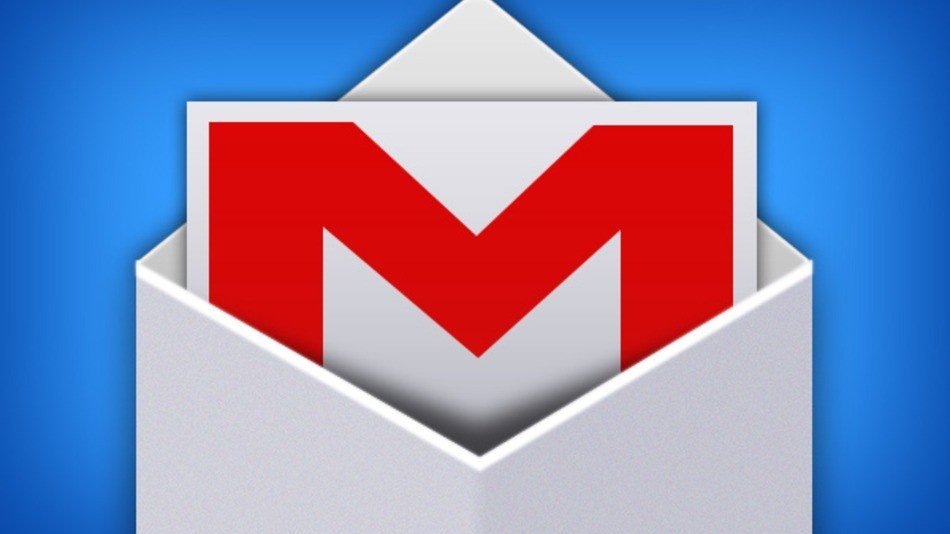Welcome, savvy marketer! Are you ready to take your B2B startup marketing strategy to the next level? The world of B2B marketing is a complex one, and as a startup, you need to be strategic in your approach to succeed. In this article, we’ll provide you with a comprehensive blueprint for success, covering effective marketing strategies for B2B startups, B2B marketing tactics for startup success, and growth hacking techniques that can help your startup thrive.
Key Takeaways:
- Creating an effective B2B marketing strategy requires a tailored approach that takes into account the unique challenges and opportunities of the B2B startup landscape.
- Digital marketing strategies, including social media campaigns, influencer marketing, and content marketing, can help establish a strong online presence and drive leads.
- Growth hacking techniques, such as referral marketing, email marketing, and strategic partnerships, can help accelerate your startup’s growth.
- Measuring and optimizing your marketing efforts based on KPIs and analytics is crucial for continued success.
Understanding the B2B Startup Landscape
So, you’ve got a brilliant idea for your B2B startup, but how do you ensure it reaches the right audience? Building a comprehensive marketing plan is essential for any startup looking to establish a strong presence in the B2B market.
First and foremost, it’s crucial to understand your target audience. Who are the decision-makers who will be interested in your product or service? Are you targeting small businesses or enterprise-level corporations? Once you’ve identified your target audience, you can tailor your marketing efforts accordingly.
Next, it’s time to build your marketing plan. Start with setting clear goals and objectives for your startup, such as increasing brand awareness, generating leads, and ultimately driving sales. Your marketing plan should outline specific tactics and timelines for achieving these goals.
The B2B startup landscape can be tough to navigate, but with the right targeting and a solid marketing plan, your startup can stand out in a crowded market. Don’t be afraid to get creative and try new tactics to reach your audience. Remember, building a successful startup takes time and effort, but with the right strategy, your startup can achieve great success.
Innovative Digital Marketing Strategies
Congratulations on making it to section 3! You’re well on your way to creating a killer B2B startup marketing strategy. Now, let’s talk digital marketing.
As a B2B startup, you need to be where your customers are – online. That means establishing a strong digital presence and leveraging innovative marketing strategies that set you apart from the competition.
First up, social media. Yes, even B2B startups can benefit from social media campaigns. LinkedIn, in particular, is a powerful tool for reaching your target audience and building brand awareness. Share valuable industry insights, showcase your products or services, and connect with potential customers.
Another innovative strategy to consider is influencer marketing. Identify key influencers in your industry and collaborate with them to reach a wider audience. This could be through sponsored content or co-creating thought leadership pieces.
And of course, we can’t talk about digital marketing without mentioning content marketing. But don’t just create any old content – aim to create content that’s informative, engaging, and tailored to your audience’s needs. Whether it’s blog posts, videos, or whitepapers, make sure your content adds value and positions your startup as a thought leader in the industry.
Overall, when it comes to digital marketing for B2B startups, innovation is key. Don’t be afraid to try new strategies and experiment with different channels to find what works best for your startup.
Innovative Growth Hacking Strategies for B2B Startups
Congratulations! You’ve just launched your B2B startup and you’re already seeing some traction. But now comes the hard part – sustaining that growth. Luckily, growth hacking is here to help.
In the world of B2B startups, growth hacking refers to implementing unconventional marketing tactics to quickly and inexpensively expand your customer base. Here are some effective growth hacking strategies to try:
Referral Marketing
Word of mouth is one of the most powerful marketing tools out there. Implement a referral program that incentivizes your existing customers to refer new ones. This can take the form of discounts, free trials, or other rewards. Not only will this help you acquire new customers, but it will also help build loyalty among your existing customer base.
Email Marketing
Don’t underestimate the power of a well-crafted email campaign. By segmenting your email list and tailoring your messaging to each group, you can increase open and click-through rates while also boosting conversions. Experiment with different subject lines, calls to action, and timing to find what works best for your audience.
Strategic Partnerships
Partnering with other B2B companies can help you reach a wider audience and tap into existing customer bases. Look for complementary businesses that share your target audience and collaborate on joint marketing campaigns or product offerings. Not only can this help you acquire new customers, but it can also help you establish your brand as a thought leader in your industry.
Remember, growth hacking is all about experimentation and taking risks. Don’t be afraid to try new things and think outside the box. By implementing these innovative growth hacking strategies, you can take your B2B startup to the next level.
Innovative Content Marketing Strategies for B2B Startups
Are you struggling to make an impact with your content marketing efforts? As a B2B startup, standing out in a crowded market can be challenging. But fear not, we’ve got you covered with some innovative content marketing strategies to help you cut through the noise and connect with your target audience.
1. Create Interactive Content
Nothing grabs attention quite like interactive content. Take a break from the mundane blog posts and try your hand at quizzes, contests, and assessments. Interactive content not only engages your audience, but it’s also highly shareable, increasing your reach and exposure.
Pro Tip: Create an interactive white paper or eBook that educates your audience while keeping them engaged and entertained.
2. Leverage User-Generated Content
Don’t underestimate the power of user-generated content. Encourage your customers to share their experiences with your product or service on social media, and repurpose that content to build credibility and trust with potential customers.
Pro Tip: Create a branded hashtag and incentivize your customers to use it in their posts with a chance to win a prize or be featured on your website.
3. Host Virtual Events
With the pandemic keeping us all indoors, virtual events have become increasingly popular. Hosting a virtual event is a great way to showcase your expertise, connect with your audience, and generate leads. Try hosting a webinar or a virtual conference to establish thought leadership and build brand awareness.
Pro Tip: Record your virtual event and repurpose it as on-demand content for those who couldn’t attend live.
4. Create Authentic Video Content
Video is the king of content, but authenticity is key. Ditch the polished corporate videos and embrace raw, authentic video content. Share behind-the-scenes glimpses of your team and your company culture, or create how-to videos that showcase your product or service in action.
Pro Tip: Keep your videos short and snappy, and make sure they align with your brand’s voice and tone.
5. Personalize Your Content
Personalization is no longer a nice-to-have but a must-have. Use data and insights to deliver personalized content to your target audience. Create targeted email campaigns, dynamic landing pages, and personalized content recommendations to resonate with your audience on a deeper level.
Pro Tip: Use a marketing automation tool to streamline your personalization efforts and maximize your impact.
By implementing these innovative content marketing strategies, you’ll be well on your way to establishing thought leadership, building credibility, and generating leads for your B2B startup. Happy marketing!
Lead Generation Strategies for B2B Startups
Congratulations! You’ve successfully built a comprehensive marketing plan for your B2B startup. Now, it’s time to focus on generating leads to fuel your sales pipeline. Here are some effective lead generation strategies to help you attract potential customers and drive revenue:
- Lead Magnets: Offer a valuable resource for free, such as an e-book, whitepaper, or webinar. In exchange, ask for contact information to add leads to your database.
- Email Marketing Campaigns: Develop a targeted email campaign to nurture leads through the marketing funnel. Ensure your emails are personalized, relevant, and valuable to the recipient.
- Webinars: Host a webinar that educates your target audience on a relevant topic. Collect contact information from attendees and follow up with them afterwards.
- Referral Marketing: Encourage happy customers to refer their colleagues and friends to your product or service. Offer incentives such as discounts or free trials.
- Social Media Advertising: Utilize social media platforms to target potential customers with relevant ads. Ensure your ad copy and imagery are eye-catching and compelling.
Remember to track and analyze your lead generation efforts to ensure they are effective. Monitor key performance indicators such as conversion rates, click-through rates, and lead quality. Continuously optimize your strategies based on data and insights to maximize ROI.
“The key to successful lead generation is to offer value to your potential customers. By providing relevant and valuable resources or information, you’ll establish trust and credibility while attracting quality leads.”
Summary
Generating leads is crucial for B2B startups to drive revenue and growth. Utilizing lead magnets, email marketing campaigns, webinars, referral marketing, and social media advertising can help attract potential customers and fill your sales pipeline. Remember to track and analyze your efforts to continuously optimize and improve your lead generation strategy.
Measuring and Optimizing Your B2B Startup Marketing Efforts
Congratulations, you’ve implemented effective marketing strategies for your B2B startup! But how do you know if your efforts are paying off? It’s time to measure and optimize your marketing to ensure continued success.
Identify Your Key Performance Indicators (KPIs)
To measure the effectiveness of your marketing strategies, you need to identify and track your KPIs. These metrics will help you understand how well your marketing tactics are performing and where you need to improve. Key KPIs to consider include website traffic, lead conversion rates, email open and click-through rates, and social media engagement.
Use Analytics Tools
Analytics tools are essential for gathering data on your marketing efforts. Google Analytics is a free tool that can track website traffic, user behavior, and conversion rates. Email marketing platforms like Mailchimp and Constant Contact offer detailed analytics on your email campaigns. Use these tools to gain insight into how users are interacting with your marketing campaigns and where you can make improvements.
Continuously Experiment and Optimize
Marketing is an ongoing process, and there’s always room for improvement. Continuously experiment with new tactics and techniques, and track the results. Test different variations of your emails, landing pages, and social media campaigns to determine what resonates best with your audience.
Refine Your Strategy Based on Data and Insights
Based on your KPIs and analytics, refine your marketing strategy to optimize your results. Focus on tactics that are generating the most leads and conversions, and drop those that aren’t. Use data-driven insights to tailor your marketing efforts to your target audience and maximize your ROI.
The Bottom Line
By measuring and optimizing your B2B startup marketing efforts, you’ll be able to achieve your business objectives and continue your success. Keep experimenting, testing, and refining your strategy based on data and insights. With the right approach and a little bit of wit, your B2B startup will thrive in no time.



![The Blogger's Guide To Affiliate Links: rStyle, ShopStyle, Amazon [2024 Update] - sports betting marketing strategies 20 ways to make money online in 2021](https://www.toptut.com/wp-content/uploads/2021/06/woman-holding-bunch-money-looks-very-surprised-scaled-1.jpg)



![20+ Best Referral Link Generators [Free & Paid Tools in 2024] - sports betting marketing strategies referral link generator](https://www.toptut.com/wp-content/uploads/2023/09/referral-link-generator.jpg)

